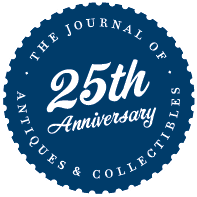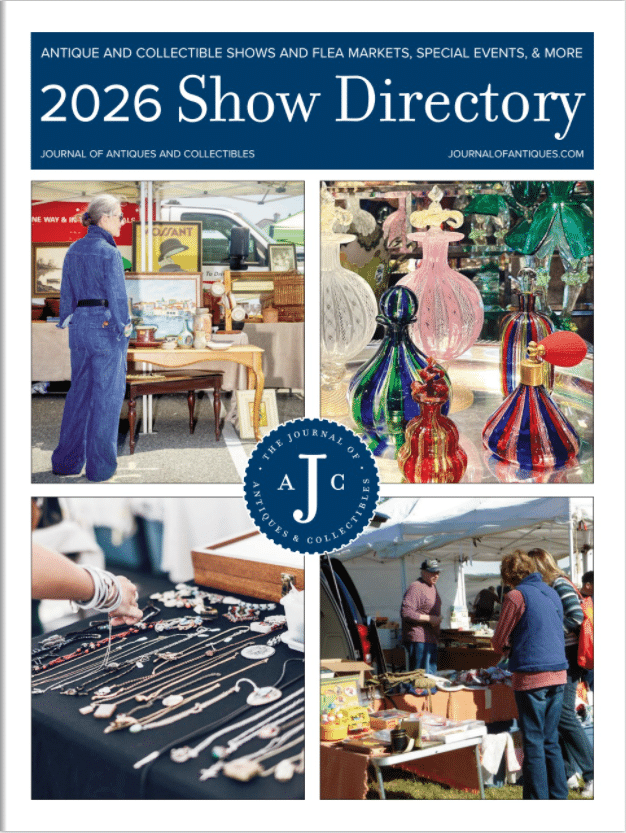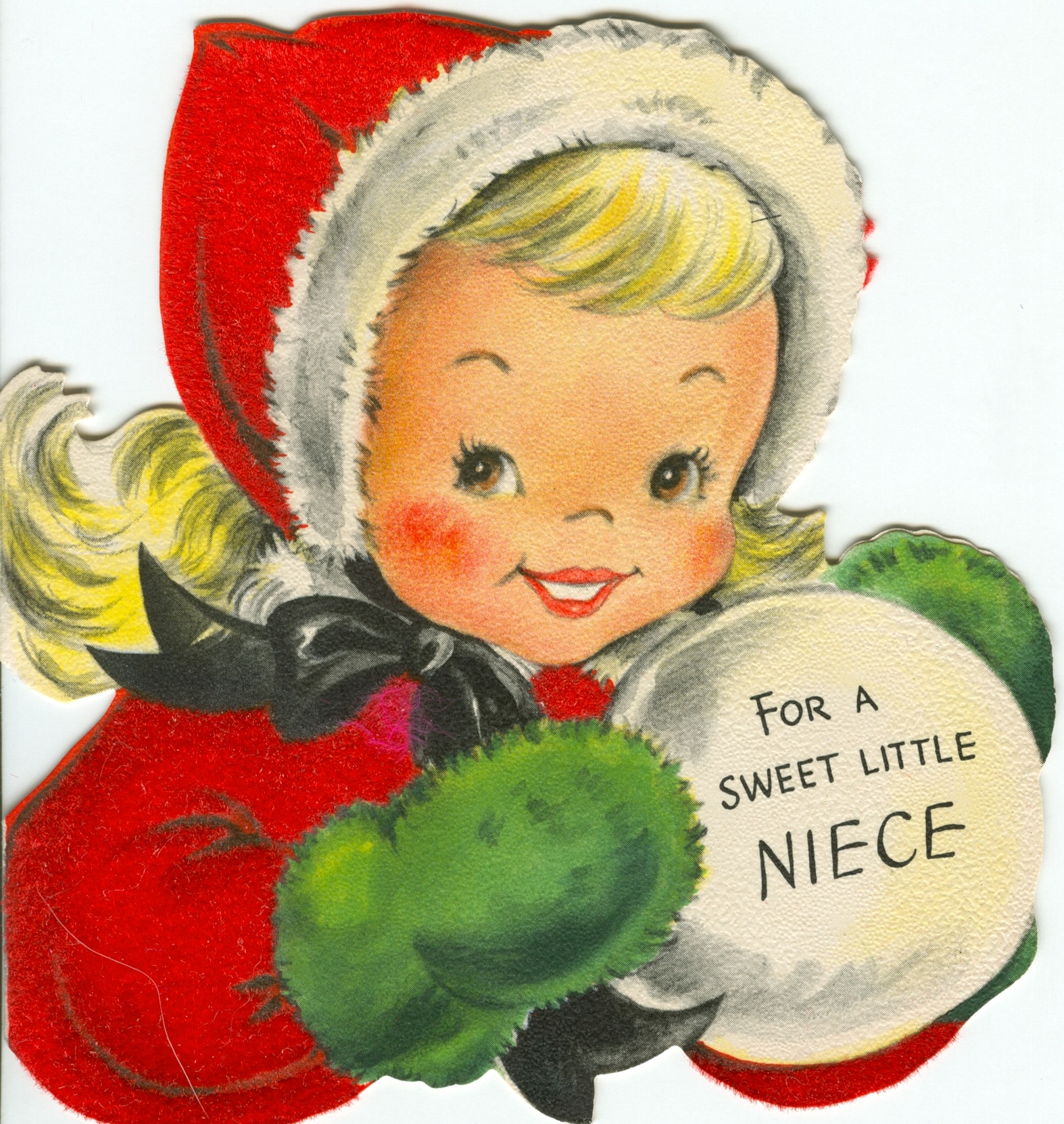From Collector to Curator: Turning Passion into Provenance
by Laurence Carpenter
How a personal obsession became a professional pursuit—and what I learned about the stories objects can tell.
When I bought my first piece of Oasis memorabilia in the mid-1990s, I wasn’t thinking about provenance, investment, or the long arc of cultural history. I was just a fan. I was drawn to the music, to the attitude, and to the physical objects that somehow carried the residue of a moment in time—a guitar pick, a setlist, a signed photo. Each item felt like a bridge to something bigger than myself.
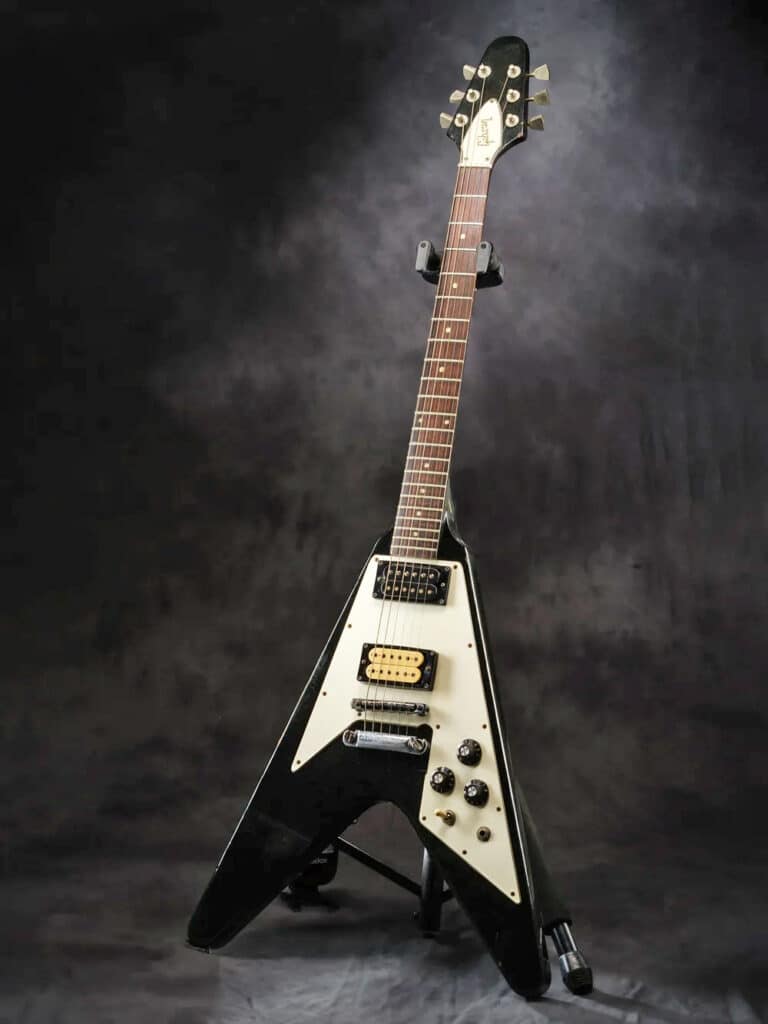
Noel Gallagher-used Gibson Flying V that was used to record “Cigarettes & Alcohol” and “Slide Away”. Johnny Marr loaned this guitar to Noel during the recording of Oasis’ debut album Definitely Maybe.
I didn’t know it then, but I was already curating. I was shaping a collection that reflected who I was and what I valued—not in words, but in things.
Collecting as Autobiography
Collectors often talk about the thrill of the hunt, but less about what the chase reveals about ourselves. Every acquisition is, in a sense, a self-portrait. When I look back now, I can trace different phases of my life through the objects I chased: the early years of saving paychecks to buy a signed Oasis album; the first time I handled a guitar used in the studio; the rush of securing an artifact that once sat in a famous musician’s hands.
Those moments weren’t about ownership. They were about connection. Each object told a story—about creativity, about imperfection, about the people behind the myth. As my collection grew, I began to realize that collecting wasn’t just a hobby. It was a form of storytelling.
From Passion to Profession
That realization quietly changed the course of my life. What began as a personal obsession eventually became Rock Solid Investments—a company dedicated to sourcing, authenticating, and placing significant pieces of music history. Over time, I found myself handling items
that once belonged to Bob Dylan, Prince, and Noel Gallagher. Each transaction brought the same excitement I’d felt as a fan, but also a deeper sense of responsibility.
Owning a rare artifact is one thing; understanding its story is another. Provenance—the chain of evidence that connects an item to its history—became my north star. Without it, even the most dazzling artifact is just a thing. With it, it becomes a chapter in a larger human story.
In a sense, that shift—from collector to curator—wasn’t about moving away from passion, but about refining it. Curation asks you to slow down, research, and contextualize. It’s about respect: for the object, for the artist, and for the truth.
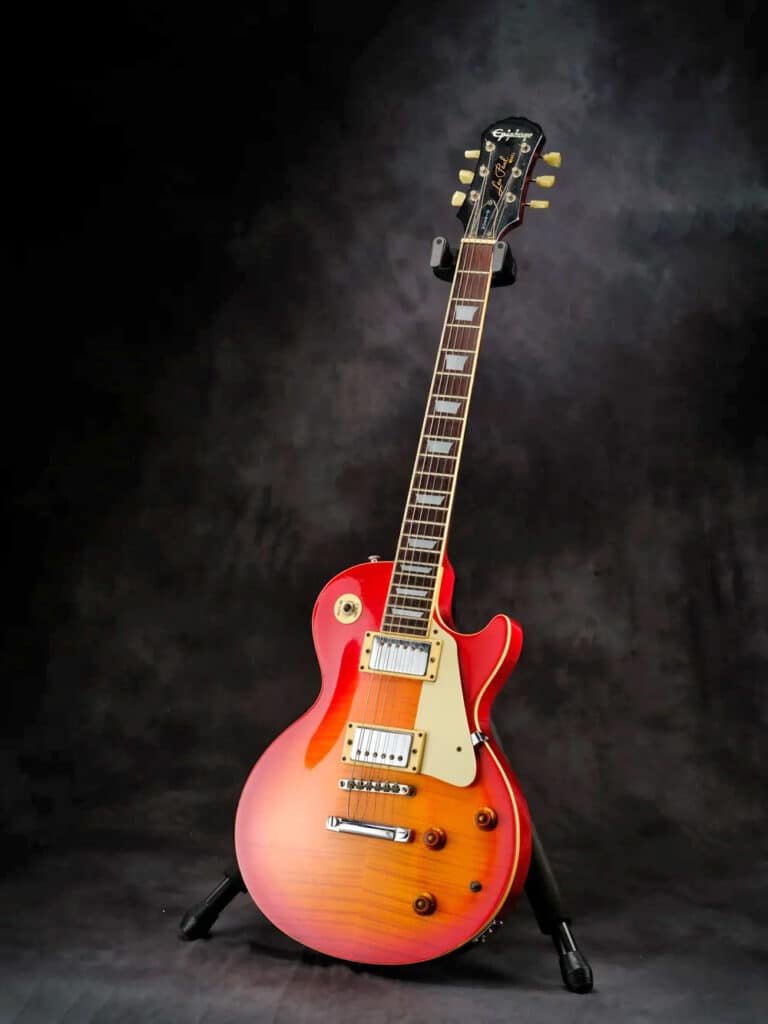
Noel Gallagher’s Epiphone Les Paul used to record Oasis’ debut album Definitely Maybe.
A New Form of Storytelling
Years later, I found myself facing a new question: how could I share these stories beyond the confines of private collections and auction rooms? That question became the foundation of Iconic Cards, my trading-card publishing company.
At first glance, trading cards might seem worlds away from guitars and handwritten lyrics. But to me, they’re part of the same impulse—a desire to preserve and pass along moments that matter. Each card is a miniature time capsule, combining photography, design, and
sometimes even relics—a piece of a guitar pick, a snippet of a stage-used tambourine, a signature—into something tangible and enduring.
I think of them as curated fragments of music history, accessible to anyone who shares the passion. They democratize collecting. A card might not carry the price tag of a guitar, but it carries the same essence: authenticity, nostalgia, and storytelling.
Curating the Intangible
The word “curate” is used loosely these days—in playlists, social feeds, even coffee orders. But in its truest form, curation is about discernment. It’s about choosing what matters, and why.
When I curate a trading-card collection, I’m doing more than assembling images. I’m shaping a narrative—deciding which stories deserve to be told, and how to tell them with honesty.
Sometimes that means including the imperfect details: a guitar’s worn fretboard, a scuffed plectrum, or a candid photo that captures the artist between poses. Those details remind us that these icons were human, and that’s what collectors respond to most deeply.
The Paradox of Letting Go
The hardest part of becoming a professional curator is learning to let go. Some of the most meaningful pieces I’ve handled are no longer mine—and that’s how it should be. A curator’s role is to act as a bridge, not a gatekeeper.
When I sold one of Noel Gallagher’s stage-used guitars, I felt the same mixture of pride and loss that any collector feels when parting with something special. But I also knew it was moving into the next chapter of its story—one that would continue long after me. True curation is stewardship, not possession.
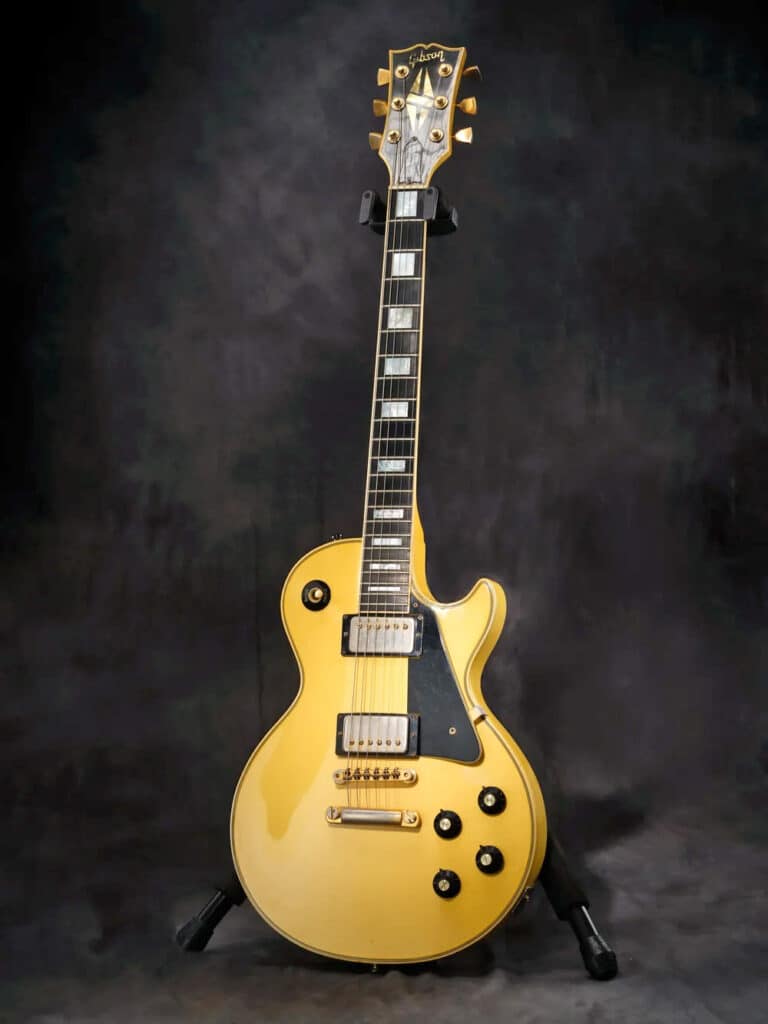
Noel Gallagher’s 20th Anniversary Les Paul custom Gibson guitar used during the recording of two Oasis albums Standing on the Shoulders of Giants and Heathen Chemistry, specifically the tracks “Go Let It Out” & “Force of Nature”.
The Personal in the Professional
Over time, I’ve learned that curating professionally doesn’t erase the personal side of collecting—it deepens it. I still get that same spark of excitement when I uncover a new piece or see a collector’s face light up when they hold something meaningful. The difference now is that I see the broader picture: how these objects fit into cultural memory, and how fragile that memory can be if not preserved.
In many ways, I’m still that teenager saving up for a signed record—just with a bigger toolbox and a stronger sense of purpose. What started as a personal collection has become a platform for storytelling, a way to connect past and present through the things we treasure.
Curation, at its heart, is an act of love—for the art, the artist, and the audience. It’s about transforming passion into provenance, and ensuring that the stories embedded in these objects continue to resonate long after the music fades.
Laurence Carpenter is one of the world’s leading music memorabilia collectors and dealers, and the Founder and Managing Director of Rock Solid Investments. He curates pieces for the Grammy Museum and has been featured on British television and radio. Based in Ireland, Laurence also founded Iconic Cards, a trading-card company celebrating music history through authentic relics and limited-edition collectibles. Contact him at laurence@popicons.com or visit RockSolidInvestments.ie
